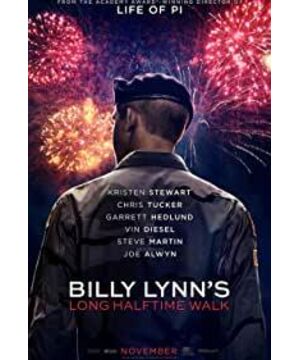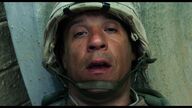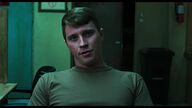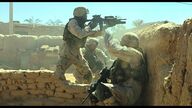1. During the interview, Ang Lee said that the theme of the film was changed many times during the shooting process, just like playing table tennis , you serve and it hits back, so it's changed many times. It's a pity I didn't watch the movie when I interviewed him, so I couldn't ask questions about the content. I've been thinking about what exactly Ang Lee has decided on the subject he wants to shoot in the end? After all, this is a very good novel in itself, and it is also quite clear. I don't know how the movie hit the ball back during filming. Later, other media's interviews about Ang Lee have not been involved in this point, which is a pity.
2. I've always said that this movie is a lot like Salinger's story. But in fact, the novel is like "The Catcher in the Rye", and Ang Lee's film is like "Nine Stories". Through Ang Lee's filtering, this actually turned into a purer and more sad story.
Ang Lee's Billy is more youthful.
Interested audiences can compare the original dialogue between Ribley and the cheerleaders in the backstage, and the comparison with the movie, to know how Ang Lee has subtracted sharpness, meanness, and sophistication from this story, and put in the greenness. , gentle and forgiving.
How did Ang Lee return to being 19 to understand the world of a teenager?
How did Ang Lee understand the youth?
In fact, Ang Lee has never really filmed a teenager. In my eyes, "Youth Pie" doesn't really count. Why does he want to go back to the world of a teenager when he is 62 years old?
3. This is certainly not a movie about "anti-war". Ang Lee knew in advance that the film would be labeled as "anti-war". However, he also said that the war left and right were not flattering. No one said good things about the war. He really didn't need to make it. An "anti-war" movie.
In fact, Ang Lee was afraid that the film would be understood as "anti-war", but it still happened.
Because the audience really needs to find "idea" from a movie, "idea" allows us to reach a consensus, "idea" allows us to complete our cognition of society and self-awareness, and not finding "idea" will make us disturbed.
4. In my eyes, this is a story about a person. "Growing up hurts too much", that's the level I can feel. And I don't really feel the level of "soldiers are soldiers". I have experience of growth, but no experience of war. But my guess is that the phrase "a soldier is a soldier" doesn't mean "Billy was born a war machine," but rather that all who we are today is shaped by our past experiences. The battlefield shapes soldiers, an irreversible change. You've been on the battlefield, you've been a soldier, that's an eternal part of your life, and you have to drag the shadows along. War divides people into two groups: those who have been on the battlefield and those who have not. You will never be able to fully understand that half.
5. I don't know if you've noticed, this movie has no shots about other people, it's a purely subjective movie: all the shots are either on Billy Lynn or Billy Lynn. Lynn sees the world. Other than that, there are no other shots - Ang Lee uses emotions to convey emotions, so neither "thirsty" nor "crying" is explained. But in fact, he gave up more, he gave up all the skills of interpretation - directors have a lot of skills, such as they often shoot a large sky, a bird is so lonely flying across the sky, and then the camera moves to the protagonist , so you understand that the protagonist is very lonely.
But there are hardly any such scenes in Billy Lynn's Halftime Battle.
6. Ang Lee must have deliberately not had these shots. However, I don't know, this is because of his understanding of 120 frames, because he has a plan for the result. Or did he not know, this was just an experiment for him?
7. But the result of this is obvious: because the director did not explain, you can only interpret it yourself. It is a very test of the "sensitivity" of the audience. And everyone's sensitivity and Ang Lee's sensitivity are definitely not synchronized, and everyone feels different emotional concentrations from different shots. So you are moved by this scene, he is moved by that scene, or he is indifferent, and the emotions are difficult to synchronize.
Emotions are an inexplicable thing.
8. Billy told the two squad leaders that he was chasing his sister's fiancé, and Billy told his sister that a group of cooks who made a fortune in Baghdad returned to the United States on the same plane as himself and Mushroom's corpse. There was no flashback. to explain, and just let Billy-- just say it. The flashback is to tell a story, and to keep the camera on Billy Lynn, who is stating the matter, is to let us see this person more clearly.
9. However, some shots are made like this simply because it is technically impossible: a 120-frame camera is the size of a refrigerator, and there must be many limitations when using it. Some parts of this film must belong to the category of "had to be made like this". In this regard, there is no need to rush to praise the correctness of every scene.
10. This movie confuses me very, very much. I don't know if future movies should be so "unexplained", I don't know if "explaining" will bring harm? What damage will it cause? As a movie audience, do we really need to agree at all?
I really don't know the answer until more 120fps movies come along.
View more about Billy Lynn's Long Halftime Walk reviews











